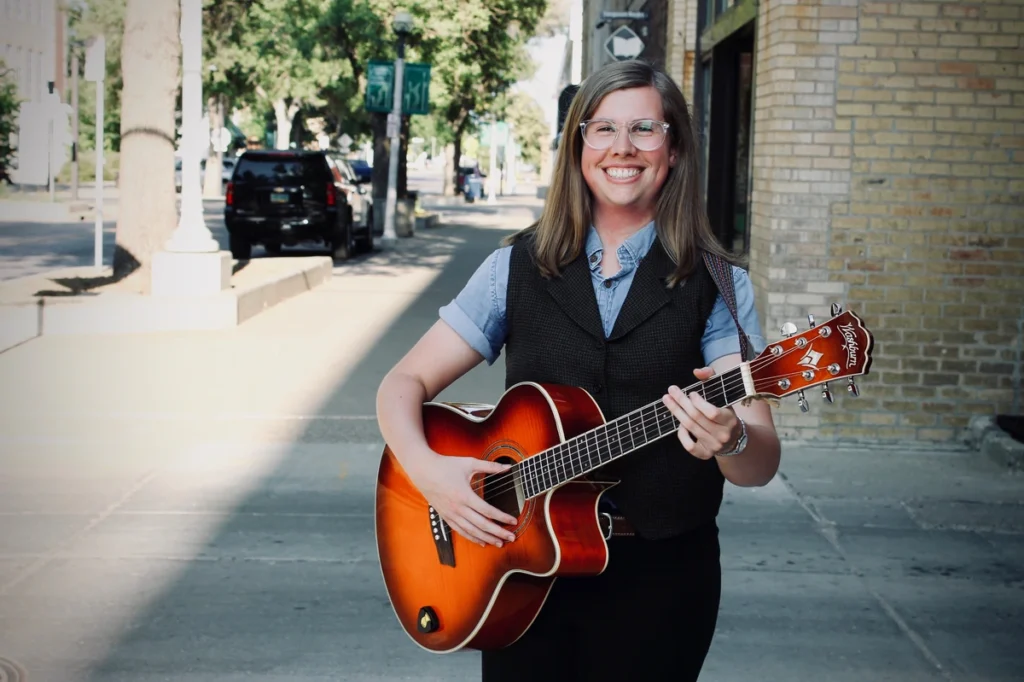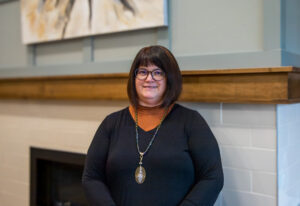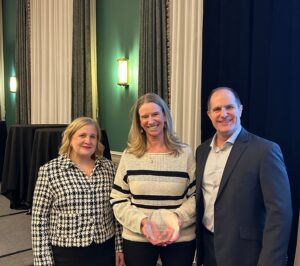Maggie O’Malley, MT-BC, is a Music Therapist at Eventide’s Moorhead campus.
Eventide Music Therapist Maggie O’Malley, MT-BC, considers her two purposes in life to be music and helping people. Fortunately, she gets to foster both in her career. Maggie is one of two professional music therapists at Eventide who provide board-certified therapy to our residents in both individual and group settings. “I’m just like your average therapist, like a physical therapist, occupational therapist, speech therapist,” Maggie said. “Except that the tool that I use to achieve my goals is music.”
Like her coworker, Music Therapist Danielle Steffes, Maggie holds a bachelor’s degree in Music Therapy from University of North Dakota. She performed her mandatory 1,200-hour internship in Logan, Utah, which is where she discovered a love of caring for elders in long term care settings. “Before I even graduated, I knew I wanted to work with older adults. Music therapy isn’t always offered at senior living communities, and I love that Eventide offers it to residents,” Maggie said. “It really blends my love of helping older adults and my love of music.”
For her, music therapy does what many other therapies cannot, simply because music activates so many components of a person’s brain—emotions, memories, physical responses, to name a few. “Music stimulates every part of the brain, in some way, so even with people who are experiencing memory loss or have a brain injury, the part of the brain that activates when music is being played just comes alive. Music is always with you.”
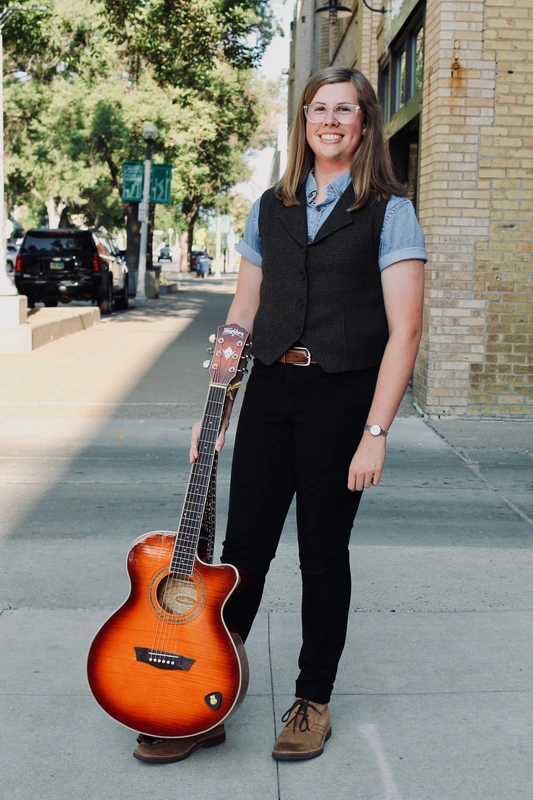
Ready to roll
Like many teens about to graduate from high school and embark upon their early-adult journeys, Maggie wrestled with what to do, where to go, and what kind of purpose-driven path she could pave for herself. “I knew I always liked music. I was in bands and choirs, and I always knew I wanted to be in a health care profession because I love being able to help people,” Maggie said. “I think that brings me a sense of purpose.”
Nothing seemed to fit her specific goals, until one day she found herself doing a web search on careers in music and health care. “I stumbled upon this career called music therapy and was like, ‘What the heck is that?’ I researched some more and then basically knew that was what I wanted to do because it melded by two known passions: music and helping others,” Maggie said.
She chose UND after touring the campus with her father and because she had a desire to move away from her hometown of Chicago and learn how to live on her own. “I didn’t know much about North Dakota, but there are some amazing people here, and I realized this is the place I want to be. This area is now home to me,” Maggie said. “I love it here.”
Practice makes perfect
Maggie places great emphasis on continuous learning, but during her education, training and now experience on the job, she’s honing in on the unique value of music as a therapeutic practice in senior living communities. “Everything we do as music therapists has a purpose behind why we do it, and we’re not doing it just to have fun with the residents, though we definitely have a lot of fun,” she said.
Just like mental health therapists have goals and objectives, treatment plans and session requirements, so does Maggie, who spends a lot of time recording residents’ emotional and physical needs. For example, something as simple as knowing someone’s favorite song could create ideal therapeutic outcomes. “A lot of times I need to know what kind of music they like, which is what we call preferred music. This allows the person to really get into the session and helps them relate to the music, and can also help build a rapport therapeutically.”
Maggie also takes into consideration a person’s diagnosis when she’s creating treatment plans for residents. “That can look different depending on which stage of life someone is in,” she said. “Sometimes it’s helping someone improve mobility, while other times it’s just helping them make sure they have the overall best and most comfortable life possible. Music is a powerful piece of that overall experience,” Maggie said.
Pandemic blues
Maggie started her career during a rather auspicious time: April 2020. “I first started at Eventide’s Jamestown campus during the start of the pandemic,” Maggie said. “That really limited what I could do with residents, but we did the best we could.”
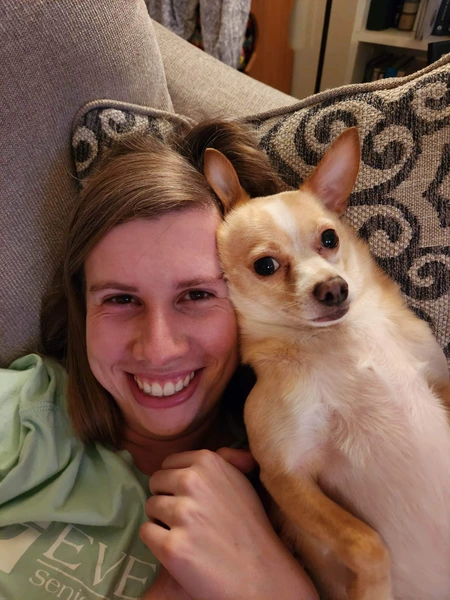
A trained clarinetist, she wasn’t allowed to use the instrument in sessions because of possible germ transmission. Prior to the pandemic, Maggie used her clarinet as an intern, where she played scales up and down to help a resident gain strength to stand up and sit down in a chair. “The way that the scale moved up and down and training to the beat really helped them train and do the movement and achieve their physical goals,” she said.
All music therapists are required to be proficient in piano, guitar and voice—three other instruments she’s been able to utilize during her time with us.
Jazzing it up at Eventide Moorhead
In November 2021, Maggie moved to our Moorhead campus where she continues to help develop and grow the Eventide Music Therapy program with her coworkers. She typically works with about 22 residents one-on-one, in addition to regular group sessions throughout the week. “I love being able to interact with older adults. They’ve lived these amazing lives, and they just get to share their stories, their wisdom, and just anything and everything they got to do in their lives. I think there’s something pretty special about being able to be with someone older,” she said. “There’s so much these seniors can do, and I want to be able to make sure they’re loved, known and living their best lives.”
Maggie encourages residents’ family members to attend music sessions. “I just love getting them to see family members watch their loved ones sing or play music during our time together. A lot of people are amazed that their parents can sing or use an instrument. It opens up a whole new way to communicate,” she said.
